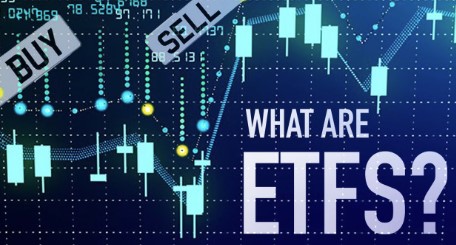
Are you looking to diversify your investment portfolio and maximize returns? Exchange-Traded Funds (ETFs) might just be the game-changer you’ve been searching for! Whether you’re a seasoned investor or new to the financial world, understanding and investing in ETFs can open up a whole new realm of possibilities. Let’s delve into this exciting investment vehicle and explore how it can work wonders for your financial goals.
What are ETFs and how do they work?
ETFs, or Exchange-Traded Funds, are investment funds that trade on stock exchanges like individual stocks. They typically hold assets such as stocks, commodities, or bonds and provide investors with diversified exposure to a specific market sector or index. When you invest in an ETF, you’re essentially buying shares of a portfolio that tracks the performance of the underlying assets.
One key advantage of ETFs is their flexibility – they can be bought and sold throughout the trading day at market prices. This liquidity allows investors to react quickly to market movements. Additionally, ETFs often have lower expense ratios compared to mutual funds, making them cost-effective investment options.
Another unique feature of ETFs is their ability to offer transparency in terms of holdings. Investors can easily access information about the assets held within an ETF, providing clarity and insight into where their money is being invested.
Benefits of investing in ETFs
Investing in ETFs offers numerous benefits to investors looking for a diversified and cost-effective approach to building their portfolio. One key advantage of ETFs is their flexibility – they can be bought and sold throughout the trading day, providing liquidity that traditional mutual funds may lack. Additionally, ETFs often have lower expense ratios compared to actively managed funds, helping investors save on fees over time.
Another benefit of investing in ETFs is the transparency they offer. Since most ETFs are passively managed and track an index, investors can easily see what securities the fund holds at any given time. This level of transparency allows for better understanding and control over one’s investments. Moreover, by investing in a single ETF, investors gain exposure to a diversified basket of securities without having to purchase each stock or bond individually.
Furthermore, ETFs provide access to various asset classes and sectors that may otherwise be challenging for individual investors to invest in directly. Whether it’s international stocks, commodities, or specific industries like technology or healthcare – there’s likely an ETF available to match your investment goals and risk tolerance. Investing in ETFs can help simplify the investment process while offering diversification benefits that align with your financial objectives.
Different types of ETFs
As an investor looking to diversify your portfolio and potentially maximize returns, understanding and investing in ETFs can be a smart move. These Exchange-Traded Funds offer a range of benefits such as liquidity, diversification, low costs, and flexibility that make them attractive investment options for both beginners and experienced investors alike.
When it comes to the different types of ETFs available in the market, there is a wide variety to choose from based on your investment goals and risk tolerance. Whether you are interested in broad market exposure, specific sectors like technology or healthcare, or even niche areas like socially responsible investing or commodities, there is likely an ETF that suits your needs.
By educating yourself on how ETFs work, recognizing their advantages, and exploring the various types available, you can make informed decisions about incorporating these funds into your investment strategy. So why not take the next step towards building a well-rounded portfolio by considering the potential benefits of including ETFs in your investment mix? Happy investing!
